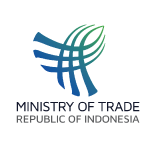For centuries, Indonesia has been the major supplier of spice to the rest of the world. Located near the equator – the tropical climate, fertile soil and cool air makes the country a perfect place for a variety of spices and herbs to grow. The kind of spices that are traded include cloves, pepper, cinnamon, nutmeg, vanilla, mace, cardamom, turmeric, ginger, coriander, basil, cumin, saffron and many more.
Apart from being used as food ingredients, spices also form a big part in the cosmetic and medical industries. While the Asian sub-continent is the most popular trade market and a large of the sum is consumed by giants like India and China, recently there has been a significant demand for spices from Europe and USA. Thus, presenting an incredible opportunity for Indonesia to expand its market and increase export value. Therefore, contributing to national economic growth.

Spices Export Performances amid Covid-19 Pandemic
Covid-19 has had a great deal of influence on health, economy and social issues worldwide, causing upsets and downsets in world trade. While many sectors endured – the spices industry had a different experience altogether. The introduction of total lockdowns, hygienic practices and need to consume healthier food drove demand for spices as the main ingredient, which continued to climb up during throughout the pandemic.
Asia Pacific has been dominating the global market with more than 30% shares of global revenue. Traditional consumer countries like India and China being the prominent ones. Before the Covid-19 outbreak, spices’ demand in North America and Europe was supported by the rise of Japanese restaurants which used mild spices and natural flavors. But since Covid first hit, the demand had increased exponentially. The post-lockdown phase has seen the rise of many Mexican, Indian, Italian and Chinese restaurants who offer traditional specialties with many herbs and spices in it. For example, Jalapeno pepper, taco seasoning, chili powder, fajita spice mixes etc. Thus, showcasing positive signs for the rise of global spices trade.


Spice’s commodity in 2019 had reached USD 13,77 billion and was predicted to grow at a compound annual growth rate of 6.3% from 2020 to 2027. One main factor of this growth is the willingness of consumers to pay higher prices and the consumers’ emergence of interest to try new, healthier and richer flavors/seasonings.
Demand has also increased for value-added products such as ready-to-mix spices and seasonings because of its ease of use. The shifting preference to ethnic flavors in conventional meat and poultry products is another driving factor for this commodity.

ITPC’s Role in Trade of Indonesian Spices
Indonesian Trade Promotion Center (ITPC) is Indonesia’s window to the world for export development and identifying new markets and opportunities overseas for producers who can meet the requirements of the markets. As a non-profit government organization under the Ministry of Trade of Republic of Indonesia – ITPC has strategically set up centers in major cities such as Barcelona, Busan, Budapest, Chennai, Chicago, Dubai, Hamburg, Jeddah, Johannesburg, Lagos, Los Angeles, Mexico City, Milan, Osaka, Santiago, Sao Paulo, Sydney and Vancouver to provide its services to world.




